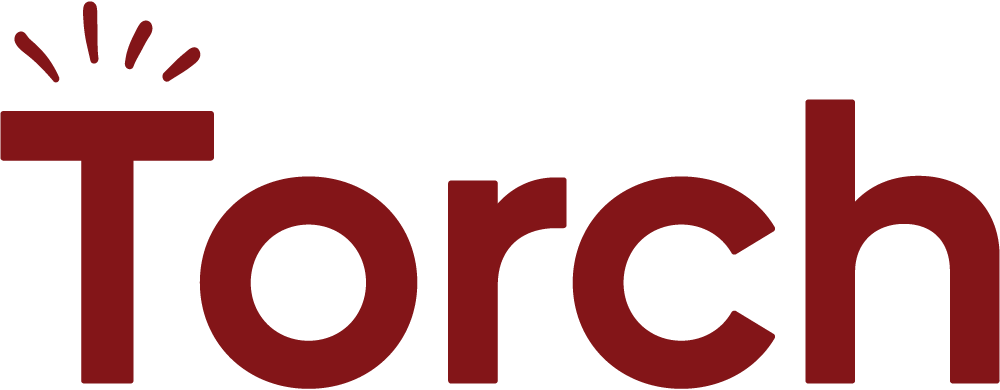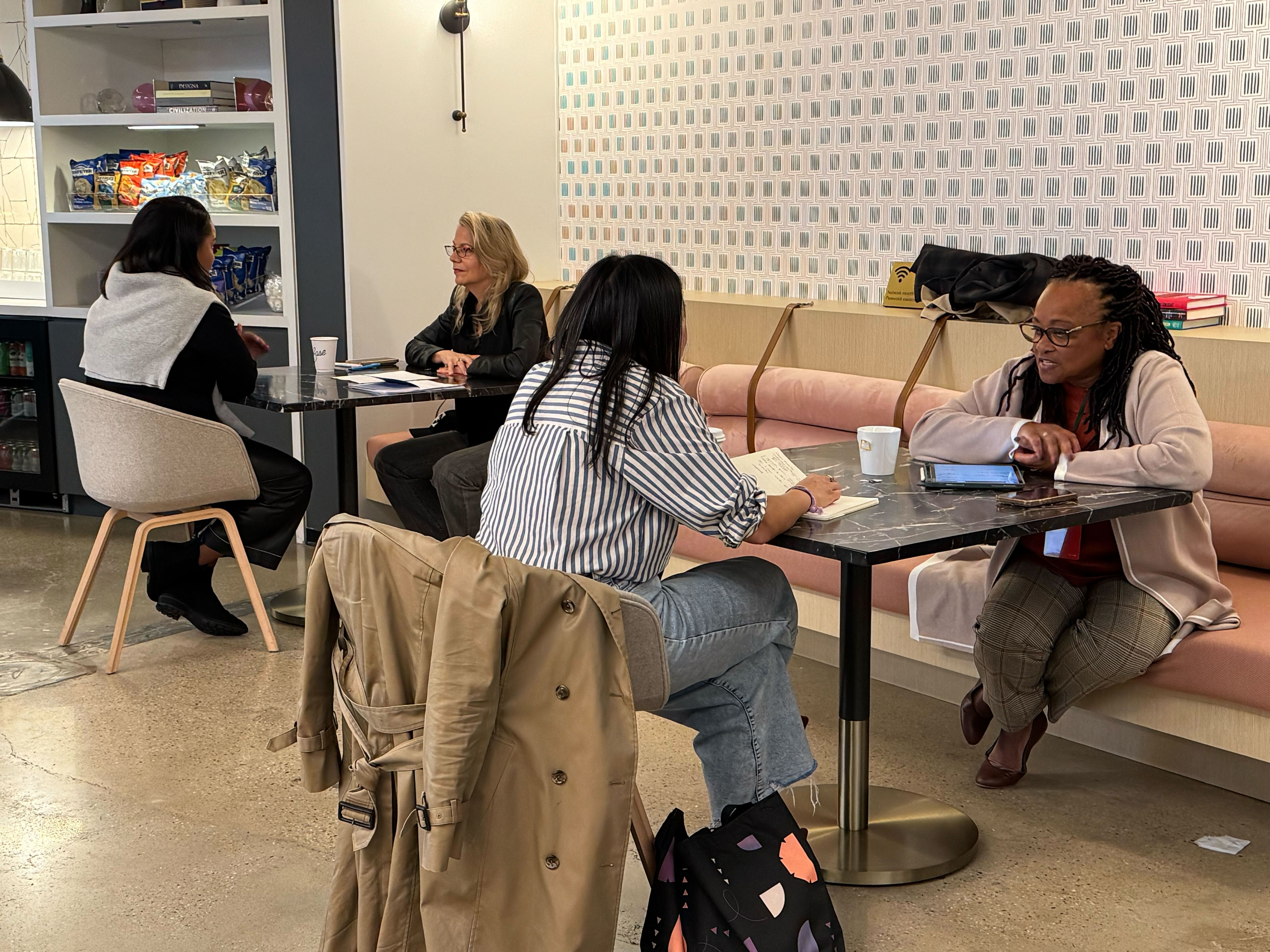At the Charter Workplace Summit in New York, Torch offered free 30-minute coaching sessions to attendees. Across multiple conversations, our coaches heard the same challenges surface again and again.
Leaders introducing change without clarity. Teams waiting for direction while their managers wrestled with uncertainty. People losing confidence when feedback never came.
The event focused on AI strategy, economic pressure, and the future of work. But the coaching conversations took those themes to a deeper human level.
“Although the conference focused on artificial intelligence, the conversations I had were all about human intelligence. Self-awareness, confidence, and connection.” — Janice Moore, Torch coach
Here’s what emerged across those conversations.
Leaders are being handed AI responsibilities without support
Leaders kept describing the same scenario. They were being tasked with rolling out new AI tools or building processes around them, given no training, no transition period, and often no meaningful guidance from senior leadership.
The examples were strikingly similar.
- One leader was told to use AI to create a new team process for efficiency. They had no idea where to start.
- Another heard their C-suite executive casually mention their role would soon be done by AI. No plan in place, just a throwaway comment that left them questioning their future.
- Others were expected to guide their teams through AI adoption while still trying to figure out what the tools even did.
What stood out was how organizations are treating AI transformation like a technical problem when it’s actually a leadership and change management challenge. The gap wasn’t technical. It was about building the leadership capacities that matter when everything’s uncertain.
When leaders don’t have clarity themselves, they can’t guide their teams. And when senior leaders speak carelessly about AI’s impact, they create fear and disengagement before the work even begins.
“Leaders are not as mindful with their words as they think they are.” — Lenore Moritz, ACC, Torch coach
Imposter feelings are showing up everywhere
The other thing that kept coming up? Leaders doubting their own capability, even when they were objectively performing well.
The imposter feelings weren’t random. They had clear triggers.
- Lack of training before being handed new responsibilities
- Absent managers who delegated without checking in
- Vague feedback that left people guessing where they stood
- Being told to “be more assertive” or “show more executive presence” without anyone defining what that meant.
One Chief People Officer came in wanting to talk about leading their organization through instability. By the end of the session, they realized the real issue was personal. They needed to find their own steadiness before they could guide others through uncertainty.
This is a support problem, not a confidence problem. Leaders are being set up to feel like they’re failing, when the real failure is organizational. No onboarding, no feedback loops, no manager accountability.
When people don’t know where they stand, they assume they’re not good enough. That assumption erodes leadership capacity faster than any skill gap ever could.
Clarity is the scarcest resource
One leader described trying to help their team think differently while struggling to do the same themselves. Another talked about balancing competing priorities when everything felt urgent and nothing felt clear.
The issue isn’t that leaders lack intelligence or capability. They’re operating in environments where expectations shift constantly, communication is vague, and they’re expected to inspire confidence while navigating their own confusion.
“AI can automate decisions, but it can’t steady a team. Leaders create clarity not by having all the answers, but by helping others stay grounded when the answers are still unfolding.” — Sheryl Kurtis, Torch coach
What stood out was how quickly things shifted when leaders had space to think through what was actually happening. Not what they thought they should be dealing with, but what was real.
Leaders can’t offer clarity to their teams if they don’t have it themselves.
The breakthroughs were human, not technical
But here’s what surprised me most. Even at an AI-focused conference, the coaching conversations kept returning to fundamentals. Self-awareness. Confidence. Connection. Trust.
The questions leaders were actually asking:
- How do I lead when I don’t have all the answers?
- How do I build trust when processes keep changing?
- How do I stay grounded when everything feels unstable?
- How do I move from managing deliverables to actually leading people?
One leader shared that they’d built a successful career on performance metrics and execution but felt disconnected from their purpose. Through the coaching conversation, they saw something clearly.
“Transformation starts not with more tools, but with more trust. Trust in their own voice and in their team’s capacity to rise when given space.” — Janice Moore, Torch coach
Organizations keep missing this. They invest in technology and expect it to solve people problems. They announce bold AI strategies without preparing leaders to guide teams through the emotional and practical reality of change. They promote people into leadership roles and assume they’ll figure it out.
Leadership doesn’t work that way. It requires reflection, support, and space to build the capacities that matter. Navigating complexity, building trust under pressure, and staying steady when the path forward isn’t clear.
The bottom line
These patterns aren’t unique to Charter Summit. They’re what we hear across hundreds of coaching conversations every month. Leaders navigating more uncertainty than ever with less support than they need.
And the coaching sessions that help most aren’t the ones that teach new frameworks. They’re the ones that connect to what’s actually happening in the business and help leaders build the capacities they need in the moments that matter.
Leaders aren’t failing. They’re under-supported.
Want to turn the challenges your leaders face into a roadmap for where to focus next? Let’s talk.
Author spotlight
Why technical training isn't enough
The AI Readiness Gap webinar digs deeper into why AI rollouts keep stalling and what actually works. You’ll hear how companies like LinkedIn scaled coaching to thousands of employees, not for AI training but to build the capacities people need when AI reshapes their work.


